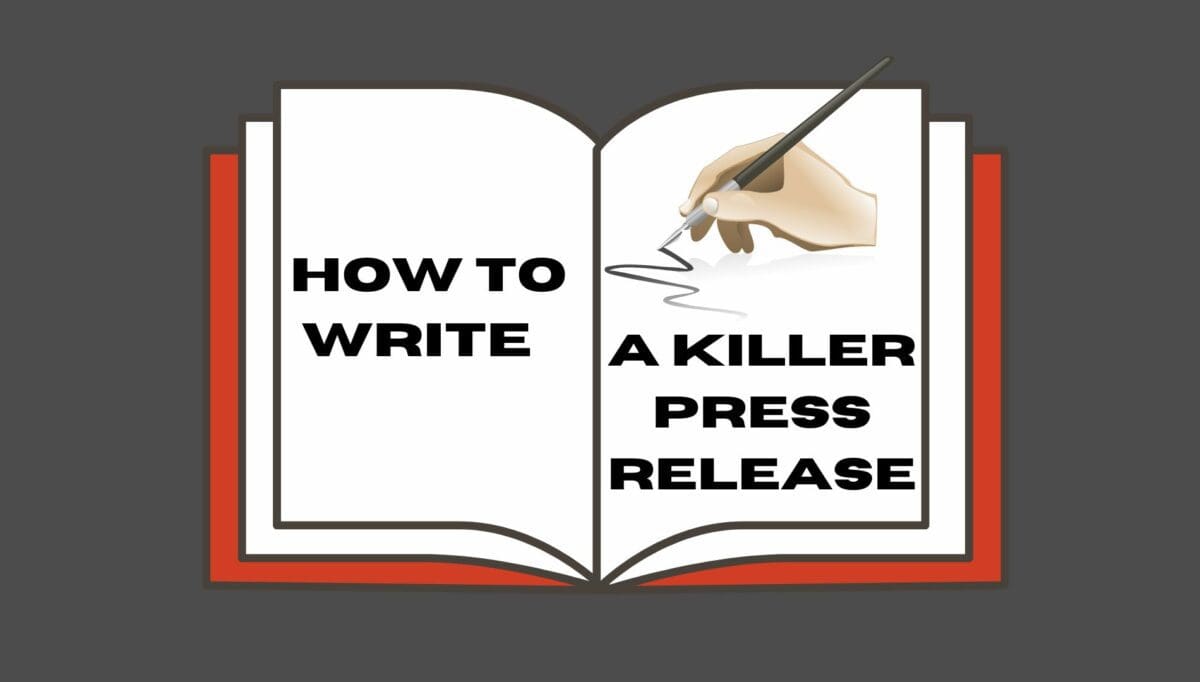Knuckling down to some revision can be hard. So what can you do to make your study time more effective and productive? And what exactly are the benefits of listening to music while studying?
There are proven benefits of listening to music while studying, but it has to be the right kind of music. Research has shown that music can help you focus, concentrate, relax, feel motivated, improve memory and make the process much more enjoyable.
Read on to find out how it can help with your academic performance, and what you should be adding to your playlist, for the most successful study periods.
Benefits of listening to music while studying

Have your parents, teachers or lecturers been encouraging you to plug into Spotify or iTunes while studying? If so, there’s a good reason behind it. You may be aware of the benefits of studying music, but did you know that there are many benefits to listening to music while studying all sorts of topics.
There are some caveats of course. Certain types of music work better than others and some subjects and learning approaches aren’t as conducive to using background sounds. But for the majority of students, there are a host of benefits.
How is music beneficial to students?
There are few things music doesn’t improve – be it a night out, meal, car journey, long flight, gym session or brisk walk. If you enjoy listening to music (and perhaps even if you don’t) music can motivate you, keep you studying for longer, make it more enjoyable and increase your cognitive function. We’ll be looking at the science behind the theories and experiences of many people.
Advantages of listening to music while studying
#1 Music helps you study
In the 1990s Dr Gordon Shaw developed a theory called The Mozart Effect. He had studied brain theory and spatial reasoning in problem-solving for decades. Following a period of research with a group of students, he deduced that their IQ had improved nine points, by frequently listening to Mozart’s “Sonata for Two Pianos in D Major.”
Scientists carrying out further studies didn’t always find the same results. So it seems it does vary from person to person. But one thing’s for sure, listening to Mozart – or similar sounds won’t make you less intelligent and it’s likely to do the opposite.
How does music help you study?
There are many ways music helps you study. One of the ways in which it improves your performance specifically in this area is by keeping you going longer. Less isn’t more when it comes to learning and by increasing your time spent revising, you’ll take in a great deal. But let’s face it, studying can be tedious and boring.
Playing music, especially for subjects you find dull and less inspiring can make it more interesting, meaning you won’t throw in the towel and stop as quickly as you might, without some accompaniment. Music = endurance.
Is music bad for studying?
Music can be bad for studying if it changes too rapidly. Seek out more sustained sounds with longer repetitive tracks. Don’t change songs frequently or use medleys. Many people say they find the music less useful for language study and reading fiction – the latter is likely because it requires your brain to imagine and visualise the world of the book.
#2 Music helps you focus
Endurance + focus is a great combination. But do you have a wandering mind? If you find yourself thinking about everything except work, as soon as you open your books, your problem may be in focus. Music is an ideal remedy when reading dry, factual textbooks, learning facts or solving problems.
Why does music help you focus?
You may find your mind wanders easily when carrying out these activities. Adding gentle sounds will provide a kind of white noise background, allowing your brain to zone into what you’re doing, rather than entertaining itself with background distractions, like intermittent traffic noise or voices.
There are times when your body and mind do need some silence. So be careful not to always fill every gap with sound. Take time every day to remove audio stimulation completely allowing your ears and mind to rest.
How can listening to music help you focus?
In this video, you’ll learn a little more about how it can help you focus on the task at hand and when listening to music doesn’t work so well for achieving focus.
#3 Music helps you concentrate
Similar to helping you focus, gentle music will enable you to concentrate on what you’re doing. Brain imaging scans show that music activates both the left and right sides of the brain at the same time – the activation of both hemispheres simultaneously can intensify learning abilities. Firing up different areas of your brain helps it stay in shape. Brain cells are known to die from inactivity – so use them or lose them! And boosting your brainpower can be as easy as listening to some lovely sounds.
How does listening to music help you concentrate?
As with the other benefits we list in this article, it does depend on what you’re listening to. Give the metal and miss and pop on some Classic FM or chill out sounds. Listening to music when you’re not studying can also have positive effects on your ability to concentrate when you do knuckle down to some work too.
How does music affect concentration?
Music helps reduce anxiety and process emotions in a healthy way. This leaves your brain free to concentrate on what you’re doing, rather than being plagued by worries and trying to sort through your feelings. Have you ever noticed how much better your mind works following some meditation or a massage? You can think more clearly and problem-solve more effectively. The same applies to the right kind of music exposure.
#4 Music affects academic performance
A primary school in Bradford made the news when it saw its SATS results dramatically improve after incorporating more music into the curriculum, despite being in a very deprived area, and usually producing poor academic performances. As so many of the students speak English as a foreign language, music breaks down barriers and enables greater degrees of communication, satisfaction and achievement.
It has long been known that those who study music often do better in maths too. And introducing music at a young age aids cognitive development. If you have kids, enrolling them in music lessons often has a lot of advantages beyond simply learning an instrument (although that too is a super life skill).
Does listening to music affect academic performance?
Researchers at Cardiff Metropolitan University tested reading comprehension with music and found that the subjects found it harder to concentrate with music present. But this was particular to reading and while there are no conclusive studies available to fully prove a comprehensive improvement in academic performance, there are many who find that it has a positive effect overall.
This is no doubt because of the mixture of benefits delivered. It is, as we’ve mentioned, also very dependent on whether your tunes of choice are likely to put you off.
How does listening to music improve academic performance?
Another reason academic performance might be affected is the ability for music to move the brain to pay attention. A study at Standford University used brain imaging to discover that peak activity often happened, during moments of silence within a longer musical movement. Music helps the brain sift events, allowing it to hone into the things that matter, better.
#5 Music helps motivate study (so you enjoy it!)
One of the biggest challenges with studying is actually knuckling down to it, then sticking at it once you’ve started. Add in some of your favourite tunes and it takes on a whole new lease of life. Create your very own learning playlist for a soundtrack to your study. Do you have a motivational song you listen to before going on stage or doing an audition? It’s a similar concept. Pick songs that get you in the zone. Focus on the outcome of your efforts and get excited about it.
Listening to music while studying research
We often talk about the positive effects singing has on the brain and body, improving mental and physical health. But you don’t necessarily have to make music yourself to reap some of the rewards. Scientists have discovered that listening to music releases dopamine in the brain. This is a feel-good chemical.
Some of the benefits have to do with the vibrations of sound, others are associated with the ebb and flow and musical arcs experienced when listening.
Listening to music while studying – an experiment
We’ve talked a little about the types of music you should listen to. In this experiment using undergraduate medical students, many reported that it was distracting to have a soundtrack. Those listening to soft music reported 75% more correct answers than those listening to fast tracks. The message is – don’t use your dance beats, or electronica when studying if you want to do well academically.
#6 Music improves memory
If you’re a singer, this is a brilliant opportunity for some multi-tasking. The act of learning lyrics and the notes helps improve your memory and even fights against longer-term illnesses such as Alzheimer’s.
Your brain is a muscle, so the more you memorise and learn, the better it gets at it. And this crosses over from performance to academia. Listening to music improves mood and a positive emotional state is also linked to better memory.
How can I improve my memory for studying?
Learn a new song a week and you’ll soon impress your mates with your fantastic ability to remember facts and stories connected to your school, college or uni work. There are lots of tricks to help you remember things – try different ones to work out which suits you best. Here are some great tips and suggestions you might like to try.
Listening to instrumental music while studying
Memorising lyrics is a great way to boost those brain cells, but don’t attempt to do it while trying to study. Keep the two actions separate – use words to practice and exercise the memory, and then use wordless music to study with.
Try to avoid instrumental tracks of songs you sing. If you hear the melodies while working, you’re likely to automatically start singing the lyrics in your head. In terms of memory function, this is great, as it means you’ve cemented them in place. But it will put you off your thread when doing other tasks that require concentration.
#7 Music helps you relax
Music is excellent for your overall mental health and in aiding relaxation. The more relaxed and calm you are, the better you’ll feel and the more you’ll achieve academically. Stress is a big problem for students and is counter-productive, but can be hard to combat. Anything that helps relieve these feelings and promote wellbeing is likely to up your game and make you happier in the process. So it makes sense to include music in your work and personal life.
How does music help relieve stress?
As you listen to music, your heart rate often syncs in time with the rhythm. Because of this, people who regularly experience stress are often advised to listen to music that lowers the heart rate to a normal resting beat (classical music is a common favourite for this). If you’re feeling nervous, with a fast heartbeat and sweaty palms before an exam or performance, pop on some calming music, focus on sustained breathing and close your eyes. You can actually induce a state of calm and slow your heartbeat to a resting rate this way.
What kind of music is good for studying?
How do you want to feel when studying? Some people like to get the adrenaline flowing, although this is more likely to be beneficial in an exam type scenario, or when cramming, when you need a quick boost of energy.
For sustained, lengthy study sessions in which you need to absorb information or write a dissertation, you’re usually better off with something calm and chilled – but no so relaxing you drift off to sleep! Jazz, folk and classical are great genres for studying.
Streaming sites and YouTube are packed with great playlists, so you don’t have to spend valuable study time compiling your own playlists.
Disadvantages of listening to music while studying
Disadvantages tend to come with the wrong choice of music. Avoid anything with lyrics as this is more likely to distract and encourage singing along. Similarly, stay away from your absolute faves. Even without lyrics, you’re likely to tune into the melodies you love best.
For some people, any sound at all is distracting and the less external stimulation present when studying, the better. If this is you, find a quiet indoor spot without any screens (unless they’re directly connected to what you’re doing). And put your phone on silent and out of reach – notifications are the worst culprits for putting you off your stride.
If you love to listen to music, then this will no doubt be good news. But the message is, don’t let your favourite playlists reign over your study time. Use music that best fits the task. It does help if it something you quite like, from a motivation perspective, but they shouldn’t be your top tunes. It’s also a great opportunity to expose yourself to different genres and periods.
Classical music tends to be less popular with younger people, but it can be a great source of study friendly compositions. Expand your musical experiences to styles you wouldn’t ordinarily pick and you may just up your grades in the process.
Related Questions
- What per cent of students listen to music while studying?
A recent survey estimated that around 60% of students use music to help with studying. Previous studies have suggested around 50% do so. So it’s likely that at least half will have some when working – you’re certainly not alone if you like to have your favourite playlist while studying.
- What are the benefits of listening to music in class?
There’s something really powerful about a shared music experience and it’s not limited to choirs. You can learn theory and explore the creativity of composition with fellow students. It also helps keep the group calm and centred.
- Is it bad to study with music on?
It depends what you’re listening to and whether it’s distracting or encouraging. You might need to experiment with different tunes to find what works for you, not against you (and it might not be your usual go-to albums).
Have you found the benefits of listening to music while studying? What genre of music do you find is best and do you have any favourite albums or artists for it? Tell us what you think in the comments below.










